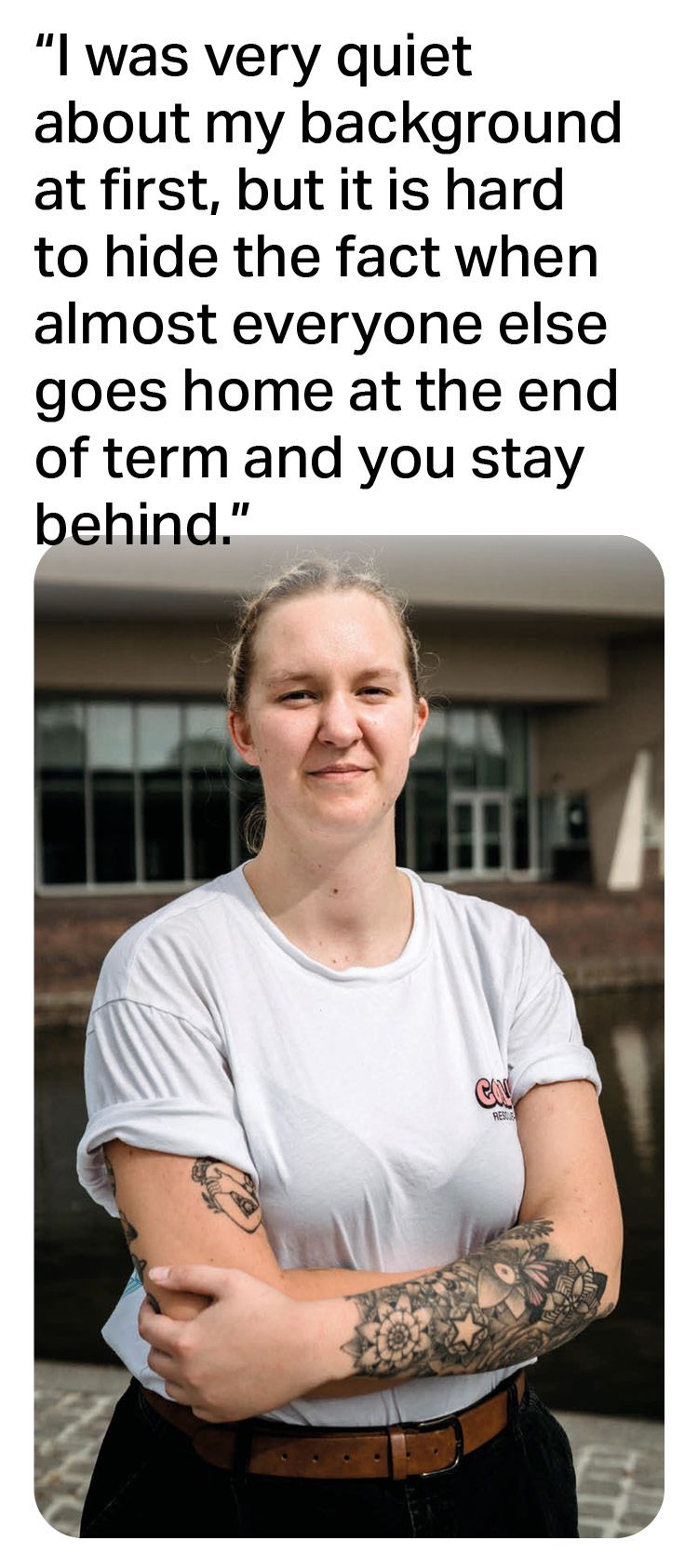Milda's story
Social Mobility at York case study
From the age of seven, Milda knew that she wanted to go to university to study mathematics; but life had other plans for the little girl from Lithuania whose family came to the UK when she was five years old.
As a teenager, just when she should have been concentrating on her exams, her world was turned upside down. Instead of studying quietly for the future, she was forced to focus on the day-to-day struggle of homelessness, a women’s refuge and ultimately
admission to hospital.
Having dropped through the gaps in Cornwall’s social care network, Milda fell further as the local mental health services failed her at the worst moment, resulting in seven months as an in-patient when she should have been preparing for A Levels.
“Everything I had was lost,” says Milda, now in the second year of a Mental Health Nursing degree at the University of York. But, with the help of friends – “anyone but the professionals” – she somehow pulled her life together, returning a year later to complete her studies and the chance to fulfil her childhood dream of going to university.
But, once again, the professionals let her down. No one at her school knew the answers to any of Milda’s many questions about support for university study. “I was living on Universal Credit, just about getting by from payment to payment, but really stressed out that I would not be able to afford to study at university,” she said. It was then she discovered the University of York.
She wanted somewhere far from the south of England and a place that understood the needs of people who had been in care. York was the only university she found that had a visible webpage dedicated to care leavers, and that answered all her questions about financial support and accommodation during the holidays. On top of that, she fell in love with the city of York.
“I had no real expectations of what support I would get, other than being given some money at some point,” says Milda. An email from the University’s dedicated care support team a week before commencement told her not to worry about kitchen utensils – a welcome pack would be provided.
“The first thing I saw when I went to my room was that someone had made the bed for me and that a little chocolate bar had been placed on the pillow,” she added. Even better, she was soon to learn that new bursaries would pay her accommodation. “That saved me £5,000 a year,” she smiled.
Early socials – organised by the University’s care leaver support team led by Fran Hornsby – connected her to other students with similar experiences and proved to be the start of lasting friendships that also helped bring Milda out of her shell.
“I was very quiet about my background at first, but it is hard to hide the fact when almost everyone else goes home at the end of term and you stay behind,” said Milda, who now plays a key role in the working groups supporting new care leavers.
Halfway through her four-year course – she will have a Masters degree under her belt when she qualifies – Milda feels she has found her vocation in forensic youth care. Her current placement in an adult forensic unit, where “no two days are the same”, is giving her valuable experience in the front line of care for people who are a risk to themselves and others.
“I had such a terrible experience with mental health services. If I can do something to change that and help others avoid what I went through, I will feel it’s not been in vain,” she says. And her advice to other care leavers who may think that university is beyond their reach and the door to social mobility locked? “Never think that. Most universities take care of the big financial worries. Just focus on what you want to do and go where you want to go, and go out and do it.”
